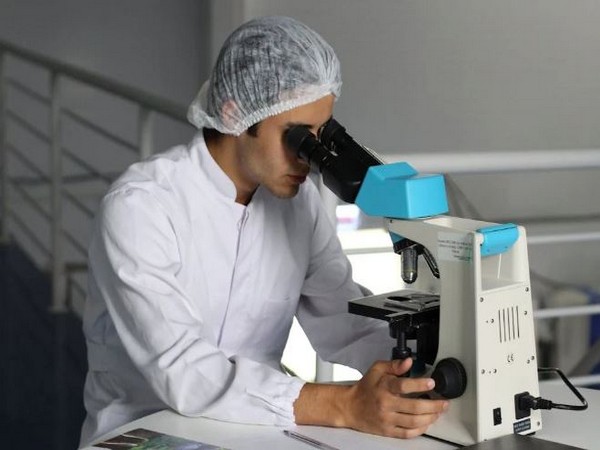Cambridgeshire [UK], July 7 (ANI): Scientists have uncovered over 5,000 genetic variations that allow some malignancies to grow, as well as a possible therapeutic target for treating or even preventing these cancers from arising.
Researchers from the Wellcome Sanger Institute, The Institute of Cancer Research, London, and the University of Cambridge evaluated the health effects of genetic alterations in BAP1, a ‘tumour defence’ gene. They discovered that almost one-fifth of these potential mutations were pathogenic, considerably raising the likelihood of developing malignancies of the eye, lung lining, brain, skin, and kidney.
The findings, published in Nature Genetics, are freely available so that they can be immediately used by doctors to help diagnose patients and choose the most effective therapies for them1. Importantly, as all possible variants were assessed, the findings benefit individuals from diverse ethnic backgrounds, who have historically been underrepresented in genetics research.
The team also uncovered a link between certain disruptive BAP1 variants and higher levels of IGF-1, a hormone and growth factor. This discovery opens the door to developing new drugs that could inhibit these harmful effects, potentially slowing down or preventing the progression of certain cancers.
The BAP1 protein acts as a powerful tumour suppressor in the body, protecting against cancers of the eye, lung lining, brain, skin, and kidney. Inherited variants that disrupt the protein can increase a person’s lifetime risk of developing these cancers by up to 50 per cent2, typically occurring around middle age.
Detecting these variants early through genetic screening can guide preventative measures, greatly enhance treatment effectiveness and improve quality of life for individuals affected. However, until now, there has been limited understanding of which specific genetic changes in BAP1 to look out for, especially for rare variants that cause it to malfunction and fuel cancer growth.
Researchers from the Sanger Institute, and their collaborators at The Institute of Cancer Research and the University of Cambridge tested all 18,108 possible DNA changes in the BAP1 gene by artificially altering the genetic code of human cells grown in a dish, in a process known as ‘saturation genome editing’. They identified that 5,665 of these changes were harmful and disrupted the protein’s protective effects3. Analysis of UK Biobank data confirmed that individuals carrying these harmful BAP1 variants are over ten per cent more likely to be diagnosed with cancer than the general population.
The team also discovered that people with harmful BAP1 variants have elevated levels of IGF-1 in their blood, a hormone linked to both cancer growth and brain development. Even individuals without cancer showed these elevated levels, suggesting that IGF-1 could be a target for new treatments to slow down or prevent certain cancers. Further analysis revealed harmful BAP1 variants and higher IGF-1 levels were linked to worse outcomes in uveal melanoma patients, highlighting the potential for IGF-1 inhibitors in cancer therapy.
Notably, the technique profiles all possible BAP1 variants from diverse populations, not only those prevalent in European clinical records, helping to address the underrepresentation of non-European populations in genetic studies.
Dr Andrew Waters, first author of the study at the Wellcome Sanger Institute, said: “Previous approaches for studying how variants effect function in genes have been on a very small scale, or exclude important contexts that may contribute to how they behave. Our approach provides a true picture of gene behaviour, enabling larger and more complex studies of genetic variation4. This opens up new possibilities for understanding how these changes drive disease.”
Professor Clare Turnbull, clinical lead of the study, Professor of Translational Cancer Genetics at The Institute of Cancer Research, London, and Consultant in Clinical Cancer Genetics at The Royal Marsden NHS Foundation, said, “This research could mean more accurate interpretation of genetic tests, earlier diagnoses and improved outcomes for patients and their families.”
Dr David Adams, senior author of the study at the Wellcome Sanger Institute, said, “We want to ensure that life-saving genetic insights are accessible and relevant to all people, regardless of their ancestry. Our aim is to apply this technique to a wider range of genes, potentially covering the entire human genome in the next decade with the Atlas of Variant Effects.” (ANI)
Disclaimer: This story is auto-generated from a syndicated feed of ANI; only the image & headline may have been reworked by News Services Division of World News Network Inc Ltd and Palghar News and Pune News and World News
HINDI, MARATHI, GUJARATI, TAMIL, TELUGU, BENGALI, KANNADA, ORIYA, PUNJABI, URDU, MALAYALAM
For more details and packages













